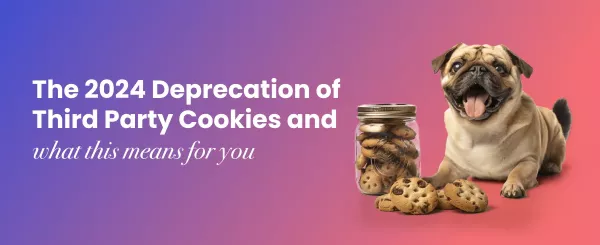Cookies: Delicious, sweet, and comforting, unless they’re following you around the internet.
In what can only be called a (seriously) delayed response, Google ending party cookies will finally happen in 2024.
Why is this a delayed response?
The reason Google’s been putting off this update to Chrome for so long, is because it’s a major tech ad platform. However, as we see things like the DMA come into force inside the EU region, and privacy laws become increasingly stringent in the UK, the tech giant has had to take some action regarding third party cookies. In comparison, browsers like Safari and Firefox stopped using similar JavaScript in 2019 and 2020 respectively.
A quick definition: Third Party vs First Party.
While Google phases out third-party cookies for good, first-party cookies are still on the table. In case you weren’t sure, the difference between the two is that first-party cookies are pieces of JavaScript placed on your browser from websites you visit (when you consent to cookie usage in exchange for exploring the site), whereas third-party cookies come from websites you have not visited to target you with ads, based on your browsing history and interests. (They’re usually embedded on your website through external services like YouTube videos, social media and display widgets).
What takes the Cookie’s place?
Google doesn’t want to remove the revenue stream presented by third-party cookies entirely and has been hard at work to come up with an alternative since announcing the deprecation of third-party cookies back in 2020.
It seems like the platform will be rolling out a set of privacy APIs, known as the Privacy Sandbox. This experiment has apparently reached minimum viable product mode and will start to be rolled out as the cookie is sunset.
What this means for marketers
Tracking user behaviour on the internet is a core part of digital advertising services, particularly for paid media agencies. Of course, if you’ve been in this game for a while, you know that these kinds of shifts happen, and players like Google and Meta resolve to find new ways to appease advertisers, as their major source of revenue.
First-party data isn’t going away anytime soon, so make sure you’re well-versed with the ins-and-outs of GA4 and first party cookies, make sure you have a comprehensive Consent Management Platform (CMS) in place to help with this. If all else fails, consult with Experts in Analytics and Paid Media Strategies to help you devise the best way forward in a cookieless future.
Need help with your Paid Media efforts? Get in touch with our experts today.





















